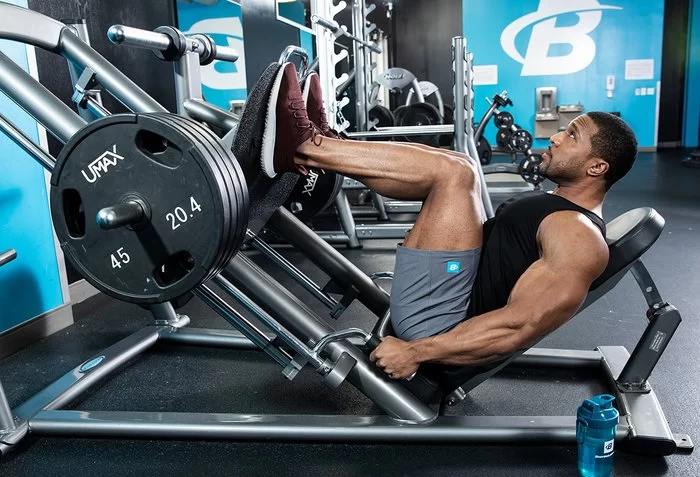
1. Not Warming Up Properly
When I first started my fitness journey, I would jump straight into my workout without giving my body the proper warm-up it needed. I thought it was a waste of time, but I quickly learned that not warming up can increase the risk of injury and make your workout less effective. Warming up helps to increase blood flow to your muscles, prepares your body for physical activity, and boosts your performance.
Over the years, I've learned that the warm-up doesn't have to be long or complicated. A few dynamic stretches or light cardio for 5–10 minutes can do wonders. Whether you're about to lift weights or go for a run, always make sure to warm up properly to avoid pulling a muscle or straining your body.
2. Skipping Cool Downs
Just as warming up is crucial, cooling down is equally important. After an intense workout, I used to skip the cool-down portion, thinking that my muscles were done working. Little did I know, skipping a cool-down could hinder my recovery and cause stiffness or soreness. Cooling down is essential for gradually bringing your heart rate down, preventing muscle tightness, and improving flexibility.
Now, I make sure to dedicate at least 5–10 minutes to light cardio and static stretching. Stretching after a workout helps to lengthen your muscles, increase your range of motion, and reduce the risk of muscle imbalances.
3. Overdoing Cardio
When I first started out, I thought the key to losing weight was all about cardio. I would spend hours on the treadmill, burning as many calories as possible. However, I soon realized that overdoing cardio can lead to muscle loss, fatigue, and a slower metabolism. In fact, focusing too much on cardio can actually work against your fitness goals.
While cardio is important for cardiovascular health and burning fat, I now focus on balancing it with strength training. Incorporating resistance exercises into my routine has not only helped me build muscle but also boosted my metabolism and improved my overall fitness.
4. Neglecting Strength Training
As someone who was once more focused on cardio, I neglected strength training for a long time. I thought lifting weights would make me bulky, but in reality, it was one of the best decisions I made for my body. Strength training not only helps to build muscle but also boosts your metabolism, strengthens your bones, and improves your posture.
Over time, I've learned that a well-rounded workout routine should include a combination of cardio and strength training. I now make sure to include compound movements like squats, deadlifts, and bench presses in my routine to work multiple muscle groups at once and maximize my results.
5. Not Following Proper Form
One of the most common mistakes I made early on was performing exercises with improper form. Whether it was lifting weights with bad posture or doing squats without proper technique, my form was all over the place. This not only led to injuries but also reduced the effectiveness of my workouts.
Over the years, I've learned that proper form is crucial for both safety and results. I always make sure to focus on my technique, and when in doubt, I ask a trainer for advice or watch instructional videos. Perfecting my form has allowed me to perform exercises more effectively, target the right muscles, and avoid injury.
6. Setting Unrealistic Expectations
At the start of my fitness journey, I had big goals – but I was often disappointed when I didn’t see instant results. I had unrealistic expectations about how quickly I would get fit and lose weight. It's easy to get caught up in the desire for quick results, but I learned that fitness is a long-term commitment.
Instead of focusing on rapid changes, I now celebrate small victories, whether it’s adding more weight to my squats or running longer without stopping. Fitness is a gradual process, and being patient with yourself and setting realistic goals is key to long-term success.
7. Ignoring Nutrition
It took me a while to realize that nutrition plays a huge role in achieving fitness goals. I would work hard in the gym but continue eating poorly, thinking that exercise alone would do the trick. Unfortunately, that wasn’t the case. I wasn’t giving my body the fuel it needed to perform well and recover after workouts.
Now, I prioritize a balanced diet that includes lean proteins, healthy fats, and plenty of vegetables. I’ve learned that proper nutrition helps with muscle recovery, energy levels, and overall performance. Eating clean is just as important as working out, and finding a diet that works for me has made a significant difference in my fitness journey.
8. Not Getting Enough Rest
When I first started working out, I thought that the more I worked out, the better. I was constantly pushing myself, thinking that if I didn't work out every day, I was falling behind. However, I quickly learned that rest is just as important as training. Rest days allow your muscles to recover and grow, and without enough sleep, your body can't perform at its best.
These days, I make sure to take at least one or two rest days a week, and I aim for 7–9 hours of sleep per night. Rest is crucial for recovery, preventing burnout, and ensuring long-term progress.
9. Neglecting Mental Health
When it comes to fitness, it’s easy to focus solely on the physical aspect, but mental health is just as important. I used to feel guilty for skipping workouts or not reaching certain goals, but I learned that fitness should be a positive and fulfilling journey. Stress, anxiety, and negative self-talk can all take a toll on your body and performance.
Now, I make sure to incorporate activities that help me relax and clear my mind, such as meditation, yoga, or simply spending time outdoors. Mental health is crucial for overall well-being, and taking care of my mind has helped me stay consistent in my fitness routine.
10. Not Tracking Progress
For a long time, I didn’t track my progress because I thought it was unnecessary. However, I quickly realized that tracking my workouts, nutrition, and overall progress helped me stay motivated and focused. Whether it’s tracking the amount of weight I lift or how many steps I take each day, seeing my improvements over time gives me the motivation to keep going.
Now, I keep a fitness journal and use apps to track my workouts. Tracking progress helps me identify areas of improvement, stay accountable, and celebrate my achievements.








